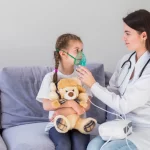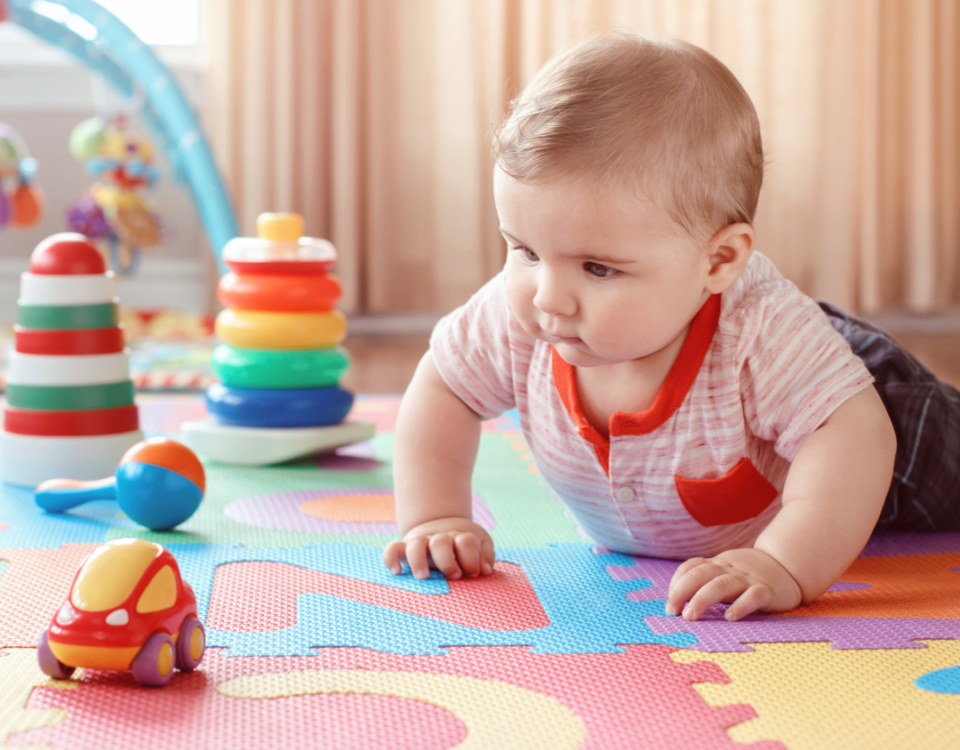
Asthma In Infants And Toddlers: How Pediatricians Diagnose And Treat Early
August 25, 2025
October Wellness Guide: Keeping Your Kids Healthy This Fall
October 29, 2025Pediatric care for Palm Springs, Greenacres, Wellington, Boca Raton & Port St. Lucie families
Healthy communication is one of the most important life skills a child can learn—and it starts much earlier than most parents think. From a baby’s first sounds to a preschooler’s storytelling and a teen’s ability to express emotions, communication shapes how children connect, learn, and grow.
At SuraMed Health Center, our pediatricians see every day how early communication influences a child’s confidence, relationships, and emotional health. Whether you’re raising a toddler just learning to speak or a school-age child building social skills, here are some practical, pediatrician-approved tips to help foster healthy communication from the start.
💬 1. Start Talking Early—Even Before They Can Talk
Infants begin developing communication skills long before they say their first word. Talking to your baby regularly—during feeding, diaper changes, or playtime—helps them recognize sounds, patterns, and emotions. Describe what you’re doing (“Now we’re putting on your socks!”) and respond when your baby coos or babbles. This back-and-forth builds the foundation for language development.
📌 Tip from our pediatric team:
Make eye contact and smile when talking to your baby. Your tone and facial expressions teach them about empathy and emotional cues.
📚 2. Read Together Every Day
Reading aloud is one of the most effective ways to encourage language growth and communication. Choose age-appropriate books with colorful pictures, rhymes, and repetition. Point to objects, name them, and ask questions as you go.
This daily routine not only builds vocabulary but also strengthens the emotional bond between parent and child.
📌 SuraMed Insight:
Even just 10–15 minutes of reading each night can make a big difference in speech development and school readiness.
🧠 3. Encourage Open Expression of Feelings
Children need to feel safe expressing how they feel—happy, sad, scared, or angry. Create an environment where emotions are validated rather than dismissed. Phrases like “I see you’re upset” or “That must feel frustrating” help children learn to identify and communicate their emotions instead of acting them out.
📌 Why this matters:
Healthy emotional communication supports mental well-being and helps prevent behavioral issues later in life.
👂 4. Be a Great Listener
Active listening is just as important as speaking. When your child talks, stop what you’re doing and give them your full attention. Nod, ask follow-up questions, and repeat what they say to show you understand.
This reinforces that their words matter—and teaches them how to be good listeners too.
📌 SuraMed Tip:
If your child struggles to open up, try talking during activities like drawing, driving, or bedtime when they feel more relaxed.
💡 5. Model the Behavior You Want to See
Children learn by example. If they see adults communicating with respect, patience, and kindness, they’ll imitate those habits. Avoid shouting or interrupting, and let your child see you handle disagreements calmly.
📌 Pro Tip:
Narrate your problem-solving out loud. For example: “I’m feeling frustrated, so I’m going to take a deep breath and think before I respond.” This teaches emotional regulation and clear communication.
🧩 6. Limit Screen Time and Encourage Conversation
Screens can be educational, but too much time on tablets or phones limits real-world conversation. Encourage interactive play, family meals without screens, and outdoor activities that spark imagination and dialogue.
📌 SuraMed Recommendation:
For toddlers and preschoolers, keep screen time under one hour per day and replace passive watching with talking, reading, or singing together.
👨⚕️ 7. Partner with Your Pediatrician
Your child’s pediatrician is an excellent resource for monitoring communication milestones and identifying any speech or hearing concerns early. At SuraMed Health Center, our bilingual team of pediatricians and nurse practitioners provides developmental screenings and guidance for families who want to support strong communication skills from infancy through adolescence.
If your child isn’t meeting speech milestones or you’re unsure what’s typical for their age, schedule a wellness visit. Early intervention can make a lasting difference.
🌟 Building Confidence Through Connection
Fostering healthy communication isn’t just about talking—it’s about connecting. Every smile, story, and shared conversation builds trust and emotional strength that last a lifetime.
At SuraMed Health Center, we’re proud to serve families across Palm Springs, Greenacres, Wellington, Boca Raton, and Port St. Lucie, providing compassionate pediatric care centered on growth, understanding, and communication.
📅 Schedule your child’s next wellness visit today and let’s work together to build strong, confident communicators—one conversation at a time.





